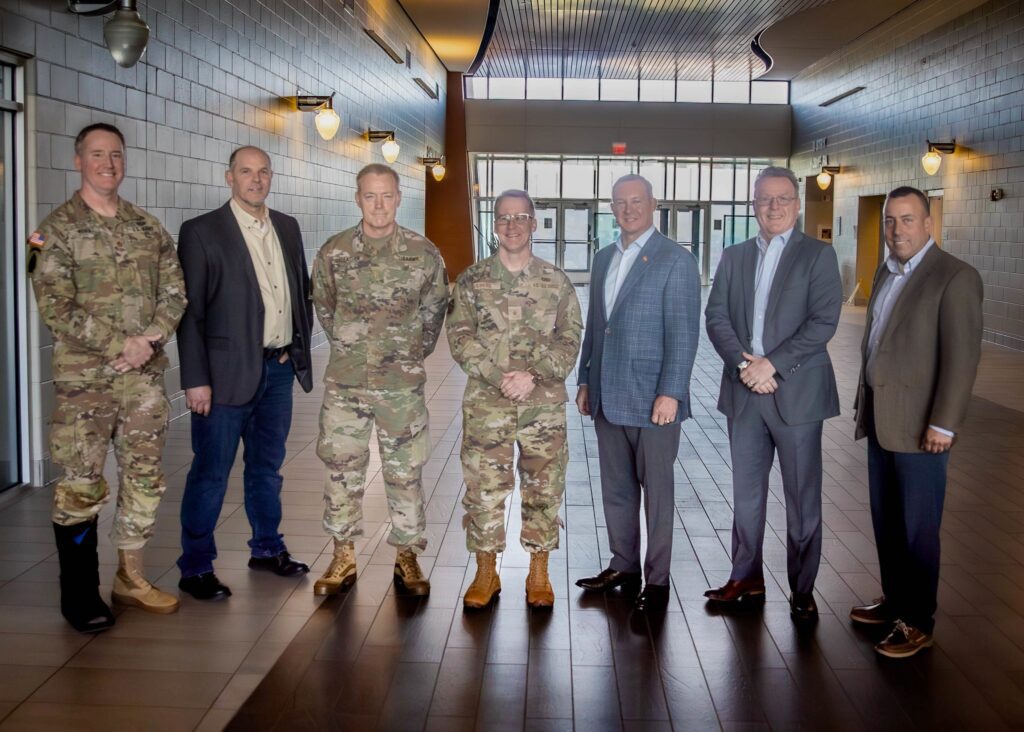
MORGANTOWN, WV (LOOTPRESS) – Cybersecurity experts from across the U.S. military, allied nations, federal agencies, universities, and the private sector gathered this month in Morgantown, West Virginia, for Locked Shields 2025—one of the world’s largest and most advanced live-fire cyber defense exercises.
Organized by NATO’s Cooperative Cyber Defense Center of Excellence, the annual exercise was hosted at the West Virginia National Guard’s (WVNG) Morgantown Readiness Center. This year marked the 15th edition of Locked Shields, which simulates a massive cyberattack against a fictional nation to test global response capabilities under pressure.
A High-Stakes Simulation
Participants faced nearly 10,000 simulated cyberattacks over several days, defending key infrastructure sectors like energy, military, and public services. The exercise involved real-time threat intelligence sharing, legal reviews, strategic planning, and rapid technical response—all under conditions that mimic real-world crisis scenarios.
Each element of the fictional country was carefully constructed, including its utilities, banking systems, and even social media networks. Teams responded to sophisticated cyber threats, executed over 28,000 system commands, and handled the simulated theft of over 4,500 passwords.
“This isn’t just a tech exercise—it’s a full-scale readiness operation,” said Brig. Gen. Patrick Chard, WVNG Director, Joint Staff. “We’re proud to host an event of this caliber here in West Virginia.”
Global Collaboration and Local Leadership
More than a dozen U.S. agencies and international allies took part, including the Department of Homeland Security’s Cybersecurity and Infrastructure Security Agency (CISA), U.S. Cyber Command’s Joint Force Headquarters–Department of Defense Information Network, the Army, Navy, Air Force, Army Reserves, and state National Guard units. Private companies such as Microsoft and Fortinet, and academic teams from West Virginia University, Marshall University, and Duke University also played key roles.
International partners included cyber defense teams from Bulgaria, Greece, and Ireland, working alongside U.S. teams in what’s known as the “Blue Team.”
“Ireland has massively benefited from this opportunity,” said Lt. Col. Mark Conway. “We hope to continue building on this partnership.”
West Virginians Leading the Charge
Several members of the West Virginia National Guard led efforts from the front lines.
-
Maj. William Keber and WO1 Adam Brenner, both serving with U.S. Cyber Command, coordinated U.S. involvement in the exercise.
-
Maj. Peter Kofod, from Special Operations Detachment–Europe, offered technical and strategic expertise.
-
CW2 Andrew Whitmer, of the Critical Infrastructure Protection Battalion, helped lead threat analysis and network defense.
Their work not only ensured a smooth execution of the U.S. segment but also spotlighted West Virginia’s growing role in national cybersecurity.
Training the Next Generation
The WVNG used Locked Shields to provide hands-on training for its developing cyber team and identify areas for future growth. The exercise also served as a proving ground for integrating military, civilian, and international cyber response capabilities.
“Locked Shields is more than a drill—it’s a blueprint for cyber resilience,” said Bill Ryan, Regional Director for CISA Region 3. “It’s where strategy, technology, and teamwork come together. And we’re proud to help make it happen.”
A Shared Mission
Legal experts, including WVNG’s Lt. Col. Christopher “Scott” Applegate, helped ensure compliance with international laws throughout the simulation. Applegate emphasized the importance of cross-border legal cooperation and trust-building between partner nations.
“Locked Shields gives us the chance to test our legal frameworks in real time,” he said. “That’s essential for true interoperability.”


